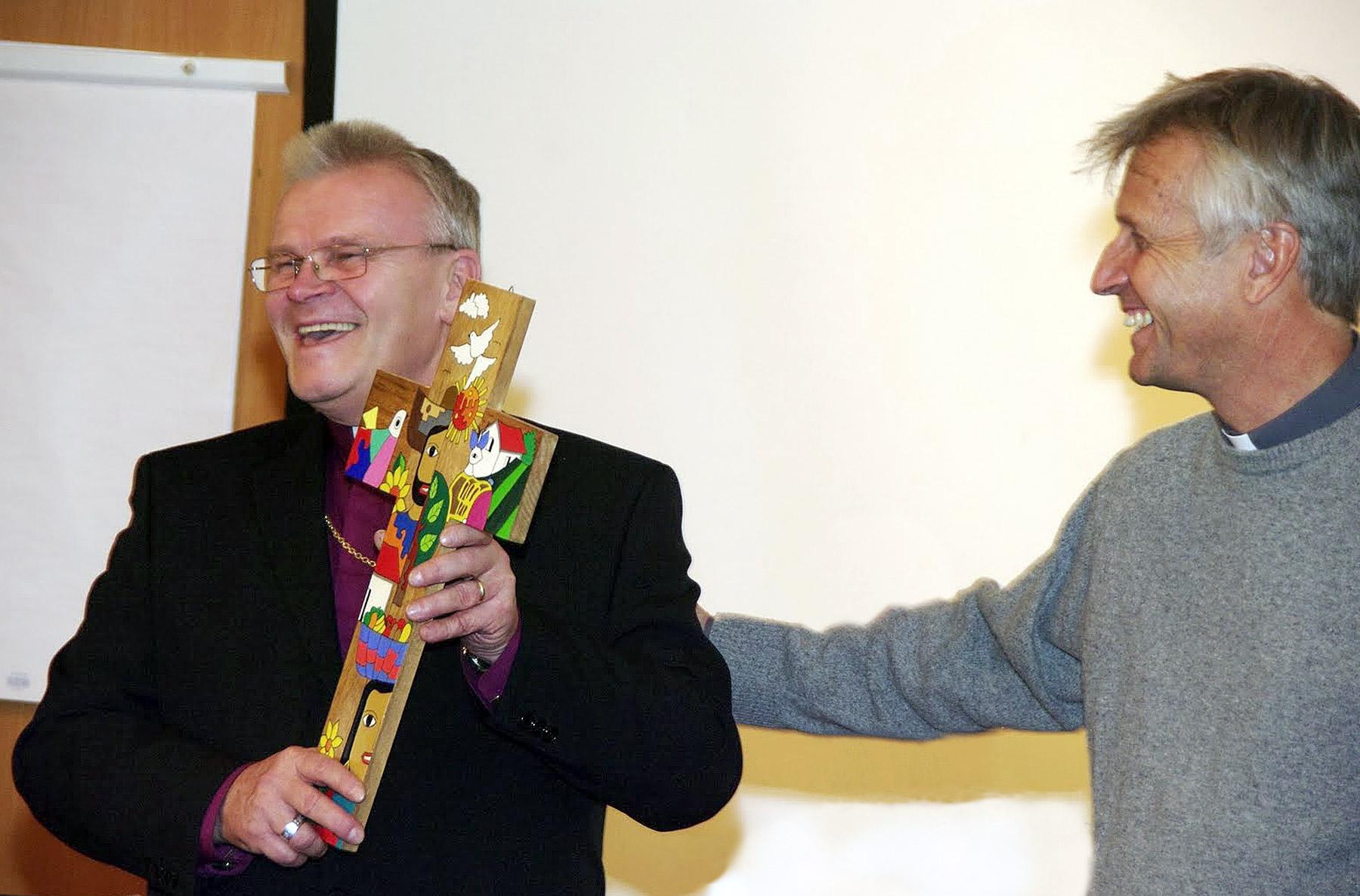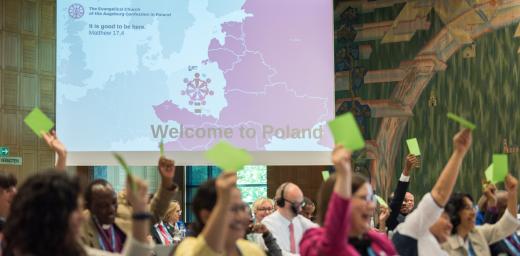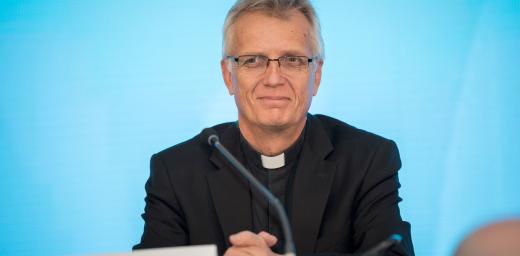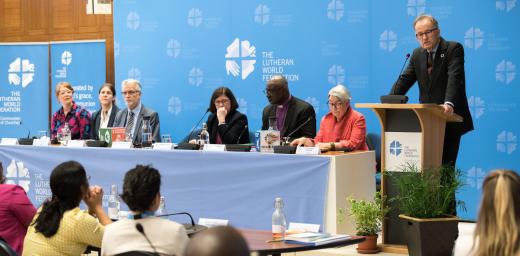Strengthening Lutheran Identity in Estonia

Rev. Martin Junge presents a cross from Central America to the Most Rev. Andres Poder, archbishop of EELC. Photo: Tiit Kuusemaa
Encouragement in Secular Society
(LWI) – To strengthen and encourage Lutheran identity in a secular society was one of the main objectives of a visit to Estonia by Rev. Martin Junge, General Secretary of The Lutheran World Federation (LWF). “As many other churches in Europe, the Estonian Evangelical Lutheran Church (EELC) too lives in a context of increased secularization,” Junge said of his visit, 18-22 January, during which he also met with the country’s president and prime minister. “Hence, the question of its place and role in society is of great importance.”
Meeting with President Toomas-Hendrik Ilves, Junge discussed the role of the church in contemporary Estonian society. “The general secretary’s visit both to President Toomas-Hendrik Ilves and to Prime Minister Andrus Ansip confirmed that the Estonian state still perceives the Estonian Evangelical Lutheran Church as one of the main spokespersons for Estonian Christians,” remarked Urmas Viilma, Chancellor of the EELC Consistory.
Past and Future
Travelling to Estonia meant a journey into the past and the future of the LWF. When many Estonian Lutherans fled their country in 1944 due to World War II, they were willing to continue to worship in their own tradition while in exile, and became an important part in the foundation of the LWF in 1947.
“The LWF’s engagement for refugees around the world resounded quite powerfully during my visit,” Junge said. “There is clear awareness among Estonians about the role of the LWF supporting them as many of them were in a situation of displacement or seeking refuge.” During the visit with the Prime Minister, Junge also discussed the question, how the Estonian state today supports refugees around the world, also through the work carried out by the LWF.
A Special Heritage
Estonian Lutheran congregations in the countryside are declining in numbers due to urbanization, general secularization and emigration, Viilma explained. While Lutherans are happy about the restitution of church buildings nationalized during the Soviet regime, maintaining these historical buildings puts additional strain on the small congregations.
Estonia is known to be one of the least religious countries in the world. More than 75 percent claim to be irreligious. Lutherans still are the largest religious group in the country, making up about 14 percent of the population with slightly less than 160,000 believers in 164 congregations. “The pastors and deacons are in need of positive encouragement and an objective picture of the global role of Lutheranism and its sustainability in the global context,” Viilma said. In his opinion, the general secretary’s visit served “to infuse courage and optimism” as Estonians prepare the commemoration of the Reformation anniversary 2017.
During the EELC Clergy Conference, Junge made a presentation titled “Living in the Joy of Gospel.” He said, “I have come with a word of encouragement to the EELC so that it doesn’t isolate itself, but actively and joyfully engages society by offering what it is meant to offer: faith, hope and love.” He added: “The power of such witness has never depended on the size and the numbers of a church, but on its vocation to participate in God’s mission”. At the conference, Junge conducted a workshop on “The Lutheran World Federation – Mission, Developments and Challenges”.
“For me personally, it was very encouraging to become more aware of being part of a global Lutheran communion, as well as the fact that there are growing Lutheran churches in the South,” Rev. Katrin-Helena Melder, pastor of the Järva-Jaani congregation, said after participating in the workshop.





